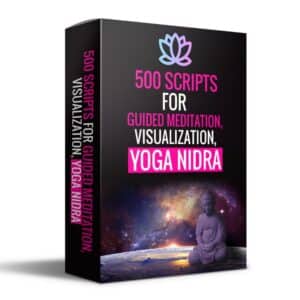Introduction to Mindfulness
Mindfulness means paying full attention to what’s happening in the present moment. It can help you enjoy life more and understand yourself better. It’s about noticing the little things and not getting overwhelmed by your thoughts.
Benefits of Mindfulness for the Elderly
- Improves Focus and Memory: Practicing mindfulness can help you concentrate better and remember things more clearly.
- Enhances Emotional Health: It can lift your mood and lead to a more positive outlook on life.
- Reduces Stress: Mindfulness helps calm your mind, making you feel less anxious and stressed.
- Increases Physical Health: It can lead to lower blood pressure and improve sleep, which is great for your overall health.
Basic Mindfulness Exercises
1. Mindful Breathing
What to do: Sit in a comfortable chair. Breathe in slowly, hold your breath for a few seconds, and breathe out gently. Focus on your breath and how your body feels with each breath.
Why it’s good: This exercise helps calm your mind and brings your focus to the present.
2. Sensory Observation
What to do: Pick an object around you, like a fruit or a flower. Look at it closely, touch it, smell it, and if you can, taste it. Notice all the details and textures.
Why it’s good: It helps you focus on the present and appreciate simple pleasures.
Incorporating Mindfulness into Daily Life
1. Mindful Eating
What to do: When eating, focus on the taste, texture, and smell of your food. Eat slowly and savor each bite.
Why it’s good: Helps improve digestion and makes eating a more enjoyable experience.
2. Gratitude Reflection
What to do: Every night, think of three things you’re grateful for. They can be simple things like a sunny day or a kind gesture from a friend.
Why it’s good: Focusing on positive things can improve your mood and outlook on life.
Tips for Mindfulness Practice
- Consistency is Key: Try to practice mindfulness every day, even if it’s just for a few minutes.
- Create a Routine: Incorporate mindfulness exercises into your daily routine, like doing mindful breathing every morning.
- Be Patient: Mindfulness takes practice, so don’t worry if your mind wanders at first. Gently bring your focus back each time.
Conclusion
Mindfulness is a wonderful tool that can enhance your quality of life, especially as you age. By focusing on the present, you can reduce stress, improve your emotional and physical health, and find more joy in the everyday. Remember, it’s never too late to start practicing mindfulness.
Discover the transformative power of mindfulness with our carefully curated collection of printable mindfulness worksheets and exercises. Each worksheet is designed to guide you through exercises that cultivate awareness, reduce stress, and promote emotional well-being. From grounding techniques to breathing exercises, these tools are your allies in navigating the complexities of daily life with a sense of calm and presence. Whether you’re a beginner or looking to deepen your practice, these printable resources are tailored to meet your needs.
Save up to 88% with our Bundles
Instant Download
- Digital Download
- Digital file type(s): 1x PDF
- Your files will be available to download once payment is confirmed

![Printable Mindfulness Worksheet & Exercises for the Elderly [PDF]](https://guidedmeditationscript.com/wp-content/uploads/2024/03/Printable-Mindfulness-Worksheet-Exercises-for-the-Elderly-PDF.jpg)
![Printable Mindfulness Worksheet & Exercises for Adolescents [PDF]](https://guidedmeditationscript.com/wp-content/uploads/2024/03/Printable-Mindfulness-Worksheet-Exercises-for-Adolescents-PDF-300x150.jpg)
![Printable Mindfulness Worksheet & Exercises for Middle Schoolers [PDF]](https://guidedmeditationscript.com/wp-content/uploads/2024/03/Printable-Mindfulness-Worksheet-Exercises-for-Middle-Schoolers-PDF-300x150.jpg)
![15,000 Positive Affirmations Bundle [PDF]](https://guidedmeditationscript.com/wp-content/uploads/2024/01/15000-Positive-Affirmations-Bundle-PDF-1-300x300.webp)

![150 Best Hypnosis Scripts [PDF] Bundle](https://guidedmeditationscript.com/wp-content/uploads/2023/11/150-Best-Hypnosis-Scripts-PDF-Bundle-300x300.jpg)

![200 Printable Mindfulness Exercises Worksheets Bundle [PDF]](https://guidedmeditationscript.com/wp-content/uploads/2024/02/200-Printable-Mindfulness-Exercises-Worksheets-Bundle-PDF-300x300.jpg)



![Printable Mindfulness Worksheet & Exercises for Managing Insomnia [PDF]](https://guidedmeditationscript.com/wp-content/uploads/2024/02/Printable-Mindfulness-Worksheet-Exercises-for-Managing-Insomnia-PDF-300x150.jpg)
![Printable Trauma-Informed Mindfulness Worksheet & Exercises [PDF]](https://guidedmeditationscript.com/wp-content/uploads/2024/02/Printable-Trauma-Informed-Mindfulness-Worksheet-Exercises-PDF-300x150.jpg)